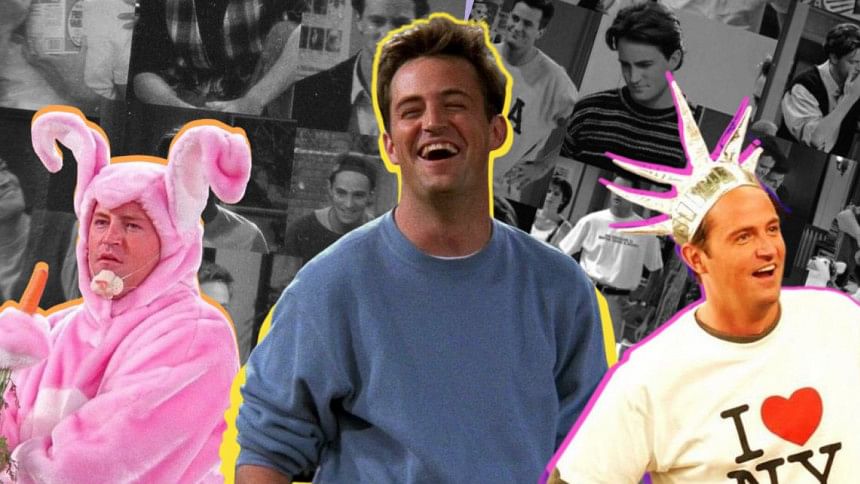You couldn’t have ‘Friends’ without Chandler Bing

Could we be more… mortal?
In the world of Friends, mortality was a distant concept; never meant to touch our cherished characters, at least not this soon. Yet, parting ways with Matthew Perry feels like bidding adieu to a friend who had become an inseparable part of us through his portrayal of a character.
As we mourn the loss of Perry, it's essential to reflect on why Friends became a touchstone for so many, especially those of us who grew up in the 90s.
The one about simpler times
Friends emerged in an era when friendships were a slow-burn affair, built over time, and not through fleeting texts and emojis. It harkens back to a period when instant gratification wasn't the norm. The show's charm lay in its ability to mirror the challenges facing its viewers, making it easy to relate to the characters and their journeys.
People generally long for the kind of uncomplicated camaraderie depicted on the show, which stands in stark contrast to today's fast-paced world. Six friends could mean more than 2,879 friends on Facebook.
The one about what really matters
Friends explored themes of love, heartbreak, career struggles, maintaining a duck and a chicken in a small apartment, and the ups and downs of adulthood. These themes resonate across generations. But where Chandler and the gang stole the show was with how they put friendship above all else. Even when they messed up, they put emphasis on fixing things. There's one episode where Chandler lies to his best friend, Joey, saying that he had seen Joey's Japanese commercial for a beauty product. Chandler's apology included him getting in touch with his feminine side, wearing blue lipstick, and calling himself "a pretty little girl" during social interactions. Juvenile? Sure. But some of us were also lucky enough to have had moments just as juvenile.
The one about being vulnerable
Chandler Bing, with his quick wit and humour, often shielded his vulnerability. His journey from sarcasm to finding genuine love and friendship resonated deeply with many. Viewers facing similar struggles found solace in Chandler's evolution, reminding them that vulnerability is not a weakness but a strength. "We swallow our feelings, even if it means we're unhappy forever. Sound good?" You deal with it when you acknowledge it.
The one where uncomfortable people make jokes to lighten the mood
In the 90s, if you were upset, you were asked to "man up" and face the world. You were instructed to shove your feelings deep, deep down. Friends became a source of comfort for many during challenging times. Chandler Bing regularly made a point to display that his jokes were a way of navigating the anxiety of growing up. As he said: "When I first meet somebody it's usually panic, anxiety, and a great deal of sweating." In a world filled with uncertainties, the show offered a sanctuary, reminding viewers that laughter could be the best medicine.
The one where the 90s kids cry
Matthew Perry, at the mere age of 25, embodied the iconic character of Chandler Bing. And he played it so well that the actor and his character became one and the same.
The last season of the show wrapped up because Chandler, married to Monica and having adopted babies, was leaving for another city. It ended with Chandler. You cannot have Friends without Chandler popping in with yet another brilliantly timed one-liner. Chandler Bing was more than a character; he was the soul of the show, the embodiment of its humour and heart.
Ehsanur Raza Ronny is head of content marketing and deputy features editor at The Daily Star.

 For all latest news, follow The Daily Star's Google News channel.
For all latest news, follow The Daily Star's Google News channel. 








Comments